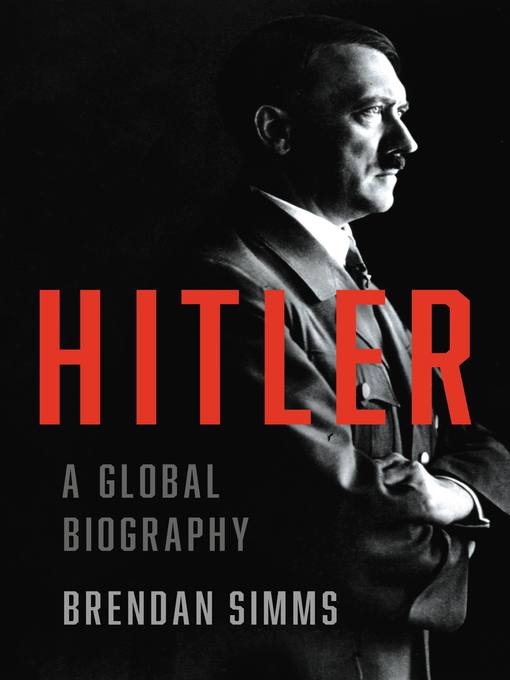
Hitler
A Global Biography
کتاب های مرتبط
- اطلاعات
- نقد و بررسی
- دیدگاه کاربران
نقد و بررسی

September 1, 2019
Adolf Hitler's motivation in declaring war on the United States on December 11, 1942, might seem incomprehensible, as his attitude toward America is not always discussed in World War II scholarship. Simms (history, Peterhouse Coll., Cambridge), however, argues that Hitler's obsession with America as a major threat to Germany was one of the most consistent parts of his ideology. Indeed, Simms asserts that Hitler's negative attitude toward the West and capitalism, rather than his fear of the Judeo-Bolshevik "threat," are critical to understanding the policy goals of the Third Reich. Hitler routinely decried the migration of "Germanic blood" to the States and what he felt was the weakening of the Reich's demographic base. This obsession was tied to his understanding of the control of international capitalism (centered in New York), making his decision to declare war on America as part of a discernible pattern. The argument feels forced at times, yet Simms points to some important correctives in our study of Hitler's ideology. For example, prior to 1933, the führer feared the threat of regionalism, especially the potential breakaway of Bavaria from the German state, as much as he was concerned with communism. VERDICT A new perspective on a figure whose actions continue to have a profound and lasting impact on world history.--Frederic Krome, Univ. of Cincinnati Clermont Coll.
Copyright 2019 Library Journal, LLC Used with permission.

September 1, 2019
A British academic builds on previous scholarship to make a bold thesis--that Hitler's principal obsession was not communism but rather "Anglo-America" and global capitalism. Situating his argument alongside the vast research of others, which he carefully delineates in a pointed introduction, Simms (History/Univ. of Cambridge; The Longest Afternoon: The 400 Men Who Decided the Battle of Waterloo, 2015, etc.) stresses the global processes that motivated Hitler--e.g., the crash of 1929 and the Depression--and the galvanizing might of the Americans, which he believed was largely due to the German emigrant drain from the motherland. The author draws from sources he believes to be neglected as well as a deep reading of Mein Kampf, and he locates the origins of Hitler's strategic approach to the enemy in the years during and following World War I, after which he emerged "as a rather lonely figure on the margins of German and world history." Moving thematically--from "Humiliation" to "Fragmentation," "Unification," "Mobilization," "Confrontation," and "Annihilation"--Simms shows how Hitler's early experience of "humiliation" (as an artist, soldier witnessing Germany's defeat, and leader of the failed putsch) led into an obsession with the successful Anglo-Saxon model--i.e., the American dream, at least partly driven by German emigration. His plan for the vast expansion of the Reich "had less to do with hatred of Bolshevism and eastern European Jewry, and more to do with the need to prepare the Reich for a confrontation or equal coexistence with an Anglo-America whose dynamism mesmerized [him]." Thus, Simms asserts, Hitler's motivation was less a hatred of communism (the classic argument) than obsession with the racial bolstering that Germany needed to take its rightful place in the global order. Moreover, Simms finds that in building his plan for an expanded empire, Hitler used the model of the British Empire's colonialism and the American colonization of the West. A vigorous, original study that adds to the ongoing scholarship.
COPYRIGHT(2019) Kirkus Reviews, ALL RIGHTS RESERVED.

























دیدگاه کاربران